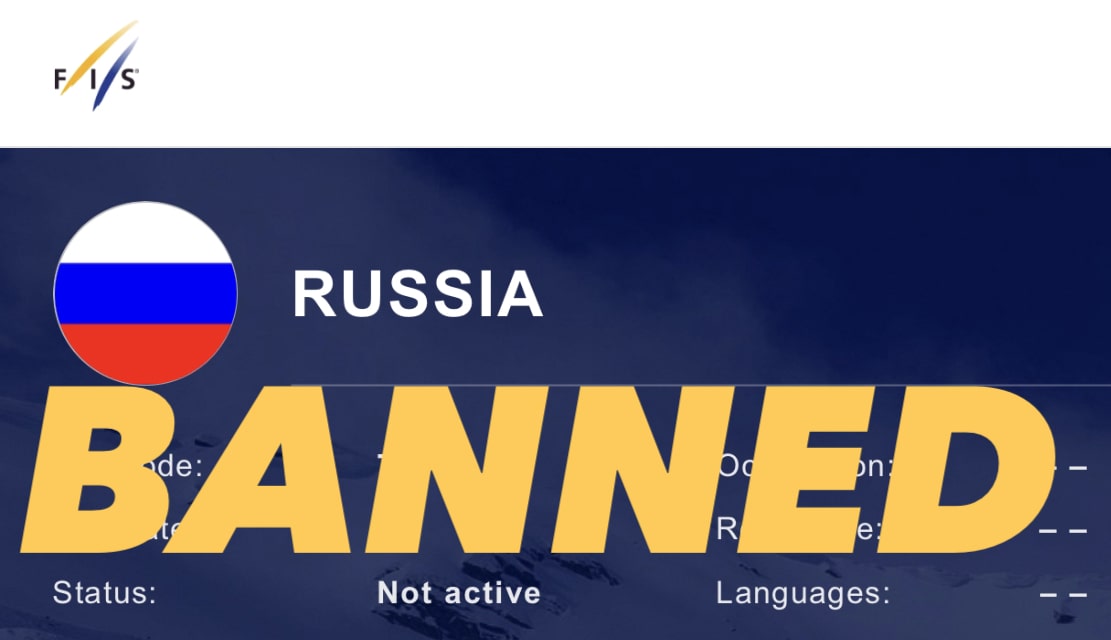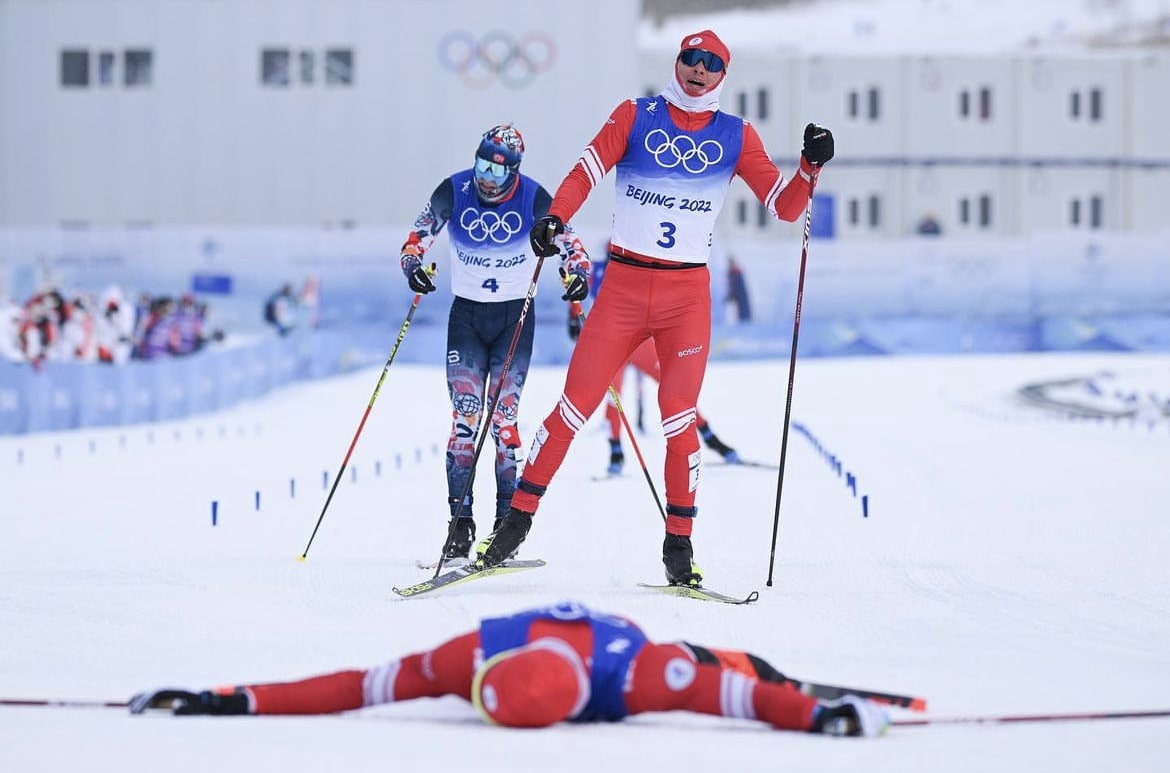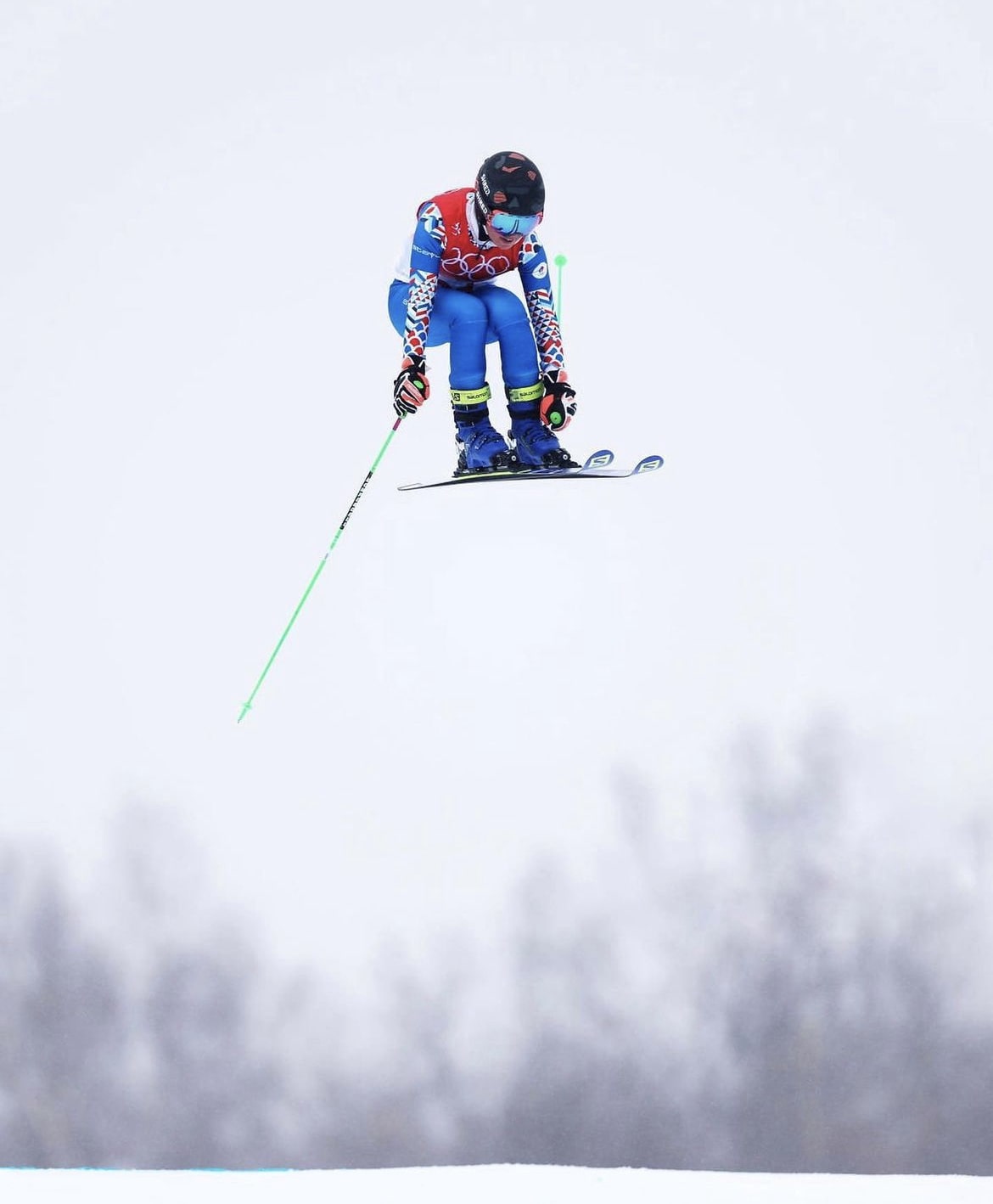
Last week at its fall meeting in Sölden, Austria, the International Ski & Snowboard Federation ‘FIS’ decided to extend the current ban on Russian and Belarusian snowsport athletes for the 22/23 season. Russian and Belarusian athletes have been banned since the start of the war on Ukraine from competing in any FIS events.
“The FIS Council decided, with due regard to the integrity of FIS competitions and for the safety of all participants, and in line with IOC (International Olympic Committee) recommendations, to continue its policy to not allow Russian and Belarusian teams and athletes, to participate in all FIS competitions.”
On March 1, 2022, FIS decided unanimously to ban all Russian and Belarusian athletes from competing at any FIS competitions for the remainder of the 21/22 season after all FIS events on Russian soil had been canceled a few days prior. Russia was poised to hold the FIS Ski Cross World Cup and FIS Aerials World Cup in Sunny Valley and Yaroslavl, respectively.
Many national governing bodies and international athletes, who were on the ground training for the upcoming events in Russia, had forced the hand of the international governing body by pulling out of the race before the FIS announcement. In what appears to be a repeat performance, the Finish and Norwegian Ski Association and individual Swedish athletes again put pressure on FIS for the upcoming season by threatening a withdrawal from cross-country events. Russian delegates and representatives had been invited to FIS events, and the Norwegian Ski Association announced a boycott of the meeting in Switzerland in September this year. FIS reiterated that the ban only extended to athletes and not representatives.

In Russia, the decision was met with disappointment and criticism. Russian Sports Minister Oleg Matytsin wrote on Telegram, an app similar to WhatsApp which is popular in Russia: “The FIS decision to extend the non-admission of Russian athletes to competitions in the 2022/23 season deprives sports fans of an entertaining fight for medals, and deprives athletes of serious competition. Russian skiers are among the strongest in the world; without them, any international competitions lose their relevance, become less interesting and exciting, and the results on the scoreboard are noticeably inferior to the previous ones.
The head of the Russian Freestyle Skiing Federation, Aleksei Kurashov, condemned the decision as “unfair.” Many Russian athletes complain that the decision came late in the season when they had been preparing to compete at FIS World Cup events and are now left with no or limited competitions they can attend.
The decision by the International Ski & Snowboard Federation also faces some international criticism, with opponents to the ban emphasizing the long-standing principle that sports are supposed to remain outside politics. The FIS ban is also controversial when Russian athletes have been able to compete in other sports, like tennis champion Daniil Medvedev, who is currently playing at the ATP tennis tournament in Vienna, Austria. Wintersports seems to be disproportionally affected. The International Biathlon Union (IBU) also extended its ban on Russian and Belarusian athletes.
